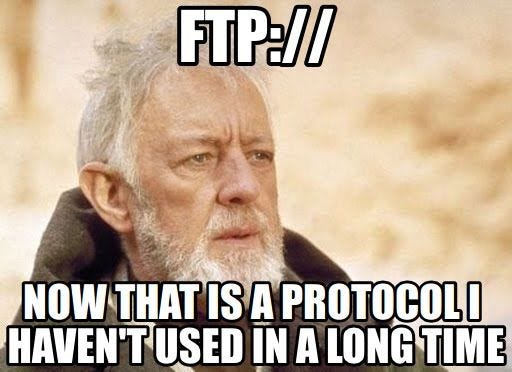Interesting Stuff
Citation Cartels - This article from science.org is about some rather unknown universities using citation count to boost their relative profile in the field of mathematics. The main metric being manipulated is highly cited papers, which is a count of how many other papers cite that paper as a stand-in for the paper’s quality. Some universities in China and Saudi Arabia figured this out and managed to get themselves to be ranked fairly high in the field of math, which typically does not have that many highly cited papers in any given year. This is an excellent example of Goodhart’s Law which states that a measure becomes useless once it becomes the target.
Fauxductivity - The article itself is about cutting out some useless reading, but there are two concepts in there that I found useful. The first is the idea that I titled here of “fauxductivity” or the tasks that look productive but are really not. I’m convinced this is a significant part of what rent-seekers do to justify their salary, if not their conscience. The other is the optimization of “just-in-time” vs. “just-in-case.” The former is a concept in manufacturing where you time making something so it comes out as you need it to reduce carrying cost. The alternative is that you make lots of stuff that you might need, and that clutters you up. “Just-in-case” describes a lot of unnecessary fiat spending.
Education Consultants - The article is about consultants for very rich peoples’ high school kids who help them get into top-end colleges. I was shocked to find out they charge $120k-$250k per child. The article is in New York Magazine, but despite its liberal tone, the takeaway for me was that institutional preferences can and will be faked and gamed. The college admission system is about as fiat as it gets and it’s not a surprise that there are specialists for getting past the obvious gatekeeping. This may very well be the moment in the future that we can point to and say that education hit peak fiat.
What I'm up to
Thriller Bitcoin - I talked to Car Gonzalez on Thriller Bitcoin at Pleb Lab. We talked about being an OG, the various books I’ve written, Christianity and many other things. I told the story of how I got into educating Bitcoin programmers, the book sprint process, and I ripped the VCs a new one and made my argument on why they’re really fiat rent-seekers who have built a reputational moat because so many people are afraid of pissing them off.
The Investor’s Podcast - I talked to Preston a few months ago and talked about the book Fiat Ruins Everything. One of the dynamics I pointed out in this interview is that at every level, only a few entities control a significant amount of resources. That is, there are a few billionaires, a few giant companies, a few influential countries that essentially control most of the world. We talked about a lot of other things like the Frankfurt School and the 7% hurdle and so on. It’s one of my favorites with regard to the book.
Advancing Bitcoin - My next conference is in March 14-15 in London at the Advancing Bitcoin conference. It’s also the same week as SXSW, so it’s a good way for me to get out of town. This is a great conference for developers in particular as there’s a large focus on learning and it’s a great way to connect with other developers in the Bitcoin space.
Nostr Note of the Week
What I’m Promoting
Unchained Capital is a sponsor of this newsletter. I am an advisor and proud to be a part of a company that’s enhancing security for Bitcoin holders. If you need multisig, collaborative custody or bitcoin native financial services, learn more here.
Bitcoin
Non-standard TXs - 0xB10C has a taxonomy of all the non-standard transactions that have been mined since the activation of Taproot. They all have various reasons for their non-standardness and some reasoning is given for why they were mined anyway by various miners. For example, there were RSK p2sh outputs which went over the sigops limit. They were mined to get the 3000 BTC that were stuck there. Other non-standard transactions include inscriptions, dust transactions with added meanings and so on. I had no idea so many non-standard transactions were being mined, and it’s probably a way for many of these pools to make money without paying their participants.
toy-bitvm-rs - There is an experimental BitVM implementation written in Rust. The BitVM project, more than perhaps any other L2 project, requires a lot of tooling and layers, so projects like this are critical to its success. Once we can have good development environments for creating new programs, we’ll start to see additional things being built using this concept. We’re still a bit far away from really good tooling, but this is a good first step.
Banco - This is a protocol on top of Liquid to do non-interactive atomic swaps. It’s essentially a decentralized exchange with this protocol, allowing any liquidity provider to fulfill the offer. This is possible on Liquid because of some extra OP codes that are available. Non-interactive swapping is a huge feature and one that paves the way for KYC-less trades. If Liquid becomes more popular, this could be one of the big features.
Lightning
Lightning Channel Service - BitFinex now offers channel opens using Blocktank’s service. While paying for channel openings has been a decent business, this is the first one that I’ve seen integrated with an exchange. This partnership makes intuitive sense because exchanges have lots of coin available to lock up, making lightning channel opens a way to get some relatively-riskless yield. Of course, security is a big factor, but this marriage of inbound liquidity being offered by exchanges seem like a natural fit.
Cashu Address - If you’ve been frustrated with having to be online to receive a lightning payment, this is a potential solution. You can now receive Lightning payments to a Cashu address (which is an LNURL), which will in turn issue the recipient eCash from their mint to the recipient. Because the eCash is locked to the public key of the recipient, the funds can be claimed back onto lightning. This is a clever way to do asychronous transactions using Lightning. The tradeoff is that there’s a dependency on the Mint to be up and also being solvent, but for small amounts, using eCash seems like a good way to do it.
Offline Payments - Speaking of asynchronous/offline payments, Roy Scheinfeld of Breez writes about their attempts to make something work for the offline payments use case. As he shows in the blog post, his company has been trying various solutions including LNURL-withdraw, using mobile notifications and many more. There’s a hint on Twitter that they may have something brand new using LNURL-pay, which should get released soon.
Economics, Engineering, Etc.
Tether made $2.85B in Q4 - The amount is staggering because it’s way more than the big banks make. Which makes you think, these banks could be massively profitable, but are not, probably due to the massive amount of rent-seekers in their organizations. The difference in the number of employees is ridiculous. Tether employs less than 50 people, most giant banks have over 50,000. The rent-seeking burden that we carry in every industry is unimaginably high.
Bitcoin Dev Harassment Trial - The trial to end CSW’s harassment of Bitcoin developers begins today in London. The organization suing, COPA or Crypto Open Patent Alliance, wants the court to declare that CSW is not Satoshi so that he won’t have grounds to sue. CSW has wasted a lot of valuable developer time and money, as well as that of people like HODLanaut and Peter McCormack, so a result in this trial could very well put a lot of this lawfare to bed. As usual, CSW is forging a ton of documents and doing lots of unethical things to feed his delusions.
January +353K Jobs - The new jobs report from the White House is getting slammed all over the place, largely because it’s so obvious that the economy is not improving while prices continue to rise. As this article points out, all of these new jobs were part time and full-time work actually decreased. The people in power really want us to believe that the economy is getting better, even as we’re seeing lots of layoffs and prices going up. We’ll see how well such shenanigans work.
Quick Hits
Ordinals-Issuers are Incompetent - The payoff for all the ordinals arguments, which is the sale of something called Quantum Cats, keeps getting delayed due to website issues. They’re so not scamming!
EIA Mining Electricity Consumption Report - As you might expect from a government agency, this is a very biased and political report meant to get a certain outcome.
FTX $400M Hack - Apparently, the $400M stolen from FTX hours after declaring bankruptcy was due to a SIM swap.
Bitcoin Degree - Ella Hough has gotten permission to study Bitcoin as her major at Cornell of all places.
Fiat delenda est.










